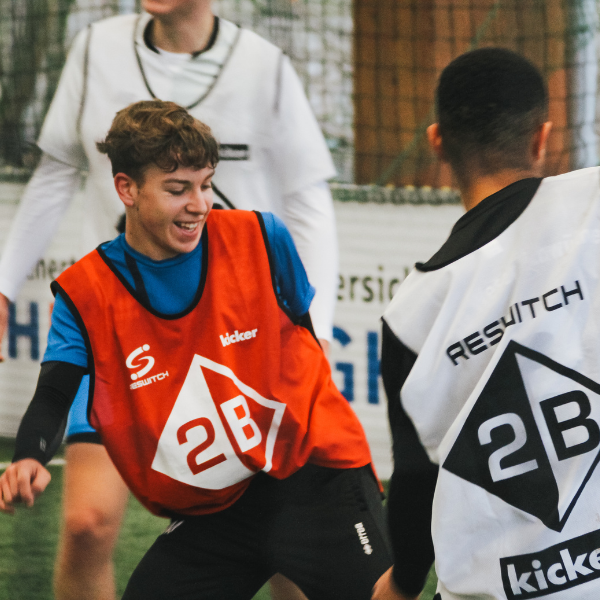Cognitive football training
Sharpen your gaming mind
In modern football, cognitive performance plays a central role in success. Players with a well-trained brain make better decisions on the pitch, anticipate game situations more quickly and react more confidently in pressure situations. Cognitive training aims to specifically improve these cognitive skills and thus optimize the game intelligence and decision-making of football players. There are three main functions that are described as executive functions:
- Working memory: Working memory is like your brain's memory aid . It allows you to store and process information in the short term, e.g. scores, tactics or the positions of your teammates
- Inhibition: Inhibition is the ability to suppress unwanted thoughts and actions . In football, for example, this means not letting yourself be irritated by distractions such as the opposing team's fans or avoiding impulsive decisions.
- Cognitive flexibility: Cognitive flexibility is the ability to adapt quickly to new situations and develop new strategies . In football, for example, this means that you can change your game when the opponent changes his tactics or that you can find new solutions to game problems.

Scientific foundation:
Overall, research suggests that cognitive skills are central to the performance and well-being of football players, affecting both adolescent and adult players. Research by Huijgen (2015) has shown that success in football depends on how information is processed in complex and rapidly changing contexts. These cognitive regulation and control skills also enable players to flexibly switch between different tasks and inhibit automated responses (Streb et al., 2012). This offers crucial advantages.
Benefits of cognitive training:
The benefits of cognitive training in football are manifold. As already mentioned, the executive functions aim to be able to react quickly to stimuli or suppress them or to enable rapid changes in decisions. In summary:
- Increased ability to concentrate: Players remain focused throughout the game and can better shield themselves from distractions.
- Reduced error rate: Through improved decision-making and anticipation, players avoid typical errors in the game.
- Increased creativity: Players find new and surprising solutions in game situations.
- Improved mental strength: Players are more mentally robust and can handle pressure situations better.
Practical examples:
The benefits of cognitive training can also be seen in professional footballers. For example, Xavi Hernández, the former playmaker of FC Barcelona, is known for his outstanding game intelligence and his ability to anticipate game situations several moves in advance. Manuel Neuer, the goalkeeper of FC Bayern Munich and the German national team, is also characterized by his quick reflexes and his ability to react to opponents' shots at lightning speed.
Training method:
RESWITCH is a method for training cognitive skills. It was important to us that cognitive training is as simple as possible and can be used by the whole team. Discover here what is possible with RESWITCH.
Conclusion:
Cognitive training is an important part of modern football. Through targeted training of cognitive skills, players can improve their game intelligence, optimize their decision-making and thus significantly increase their performance on the pitch.
In this blog post you will find further information about executive functions.




